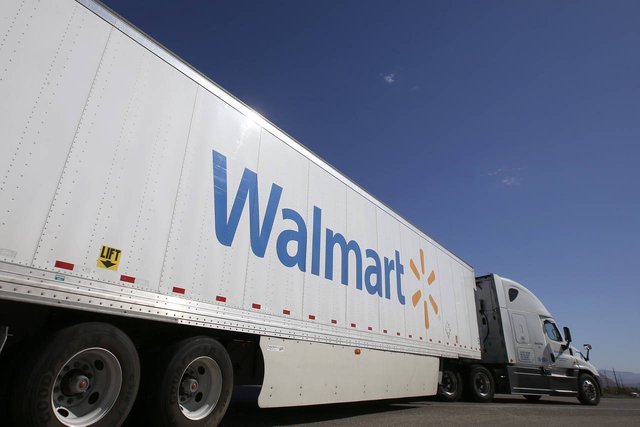Today’s Top Supply Chain and Logistics News From WSJ
Wal-Mart Stores Inc. WMT -0.52% is tightening delivery requirements for its suppliers still more as it looks to get its supply chain moving faster and leaner. The retailer will tell suppliers to deliver more goods to warehouses exactly on-time or face penalties, the WSJ’s Sarah Nassauer and Jennifer Smith write, in a new sign of how e-commerce competition is raising pressures across distribution channels. The new guidelines call for large suppliers to deliver full orders within a specified one- or two-day window 85% of the time or face a fine of 3% of the cost of goods. That’s up from earlier thresholds, and Wal-Mart is also boosting the demand on smaller suppliers from 33% to 50% on-time delivery. The standards are aimed at keeping shelves stocked and inventory low, a tough combination in retail but one that’s increasingly important as consumers scan both stores and websites for available goods. Suppliers will get something in return: data on sales and inventory that should help them put the right goods in motion.
A gold rush for cobalt is underway. Booming demand for cellphone and electric-vehicle batteries is driving a once-unthinkable growth in companies focused entirely on the metal, the WSJ’s Scott Patterson reports. New and existing companies are building up a new global supply chain built up from nearly nothing and bolstered by rapidly rising values of the metal used in lithium-ion batteries. One company, Cobalt 27 Capital Corp. , deals only in cobalt and holds one of the world’s largest stockpiles of the metal spread between warehouses in Baltimore, Rotterdam and Antwerp. One commodities group expects annual demand for cobalt to triple to roughly 100,000 metric tons by 2030. Mining giant Glencore PLC says there could be shortage as electric-car production ramps up unless a new supply is discovered. Meantime, Toronto-listed First Cobalt Corp. is returning to an old silver mine where it had found cobalt and either left in the ground tossed into waste piles.
Big new investment is going toward blurring the lines between digital and physical retail business in Asia. An investor group that includes Chinese e-commerce giant JD.com Inc. and Tencent Holdings Ltd. will pay $5.37 billion for a 14% stake in Wanda Commercial Properties Co., China’s largest mall developer. Wanda is benefiting from an escalating war for consumers and data between Tencent and Alibaba Group Holding Ltd. , the country’s two largest internet companies, the WSJ’s Wayne Ma and Liza Lin report, and by the growing push by e-commerce companies into the world of brick-and-mortar retailer. The deal gives JD.com and Tencent a partner in China’s shopping-mall business as they seek to match Alibaba’s move into physical stores, a drive that comes as Amazon.com Inc. is adding to its physical presence in the U.S. with its Whole Foods purchase. The operators in China are going further, aligning with a developer behind the retail properties.
ECONOMY & TRADE

A Wal-Mart distribution center in Washington, Utah.
Some U.S. importers may find the legal ground at the border growing more precarious. Recent court rulings have opened the door to more whistleblower lawsuits over goods that have been mislabeled to avoid customs duties. The cases take an expanded view of the False Claims Act, the WSJ’s Henry Cutter writes, encouraging lawyers that specialize in the anti-fraud cases and raising risks for corporations as they match documents to the goods they move into the country. The FCA allows people who allege wrongdoing against the government to sue on its behalf—and share whatever funds are collected. The shift came last October when the Supreme Court declined to hear an appeal by Victaulic Co. in a case involving imported pipe fittings. Recent cases like one involving may broaden the impact of whistleblower cases across the supply chain. In one case, a garment wholesaler failed to note several signs that overseas suppliers were avoiding duties by submitting fake invoices to customs.
Hello,
We have found similar content: https://www.wsj.com/articles/todays-top-supply-chain-and-logistics-news-from-wsj-1517313681
Not indicating that the content you copy/paste is not your original work could be seen as plagiarism.
These are some tips on how to share content and add value:
Repeated plagiarized posts are considered spam. Spam is discouraged by the community, and may result in action from the cheetah bot.
If you are actually the original author, please do reply to let us know!
Thank You.
More Info: Abuse Guide - 2017.